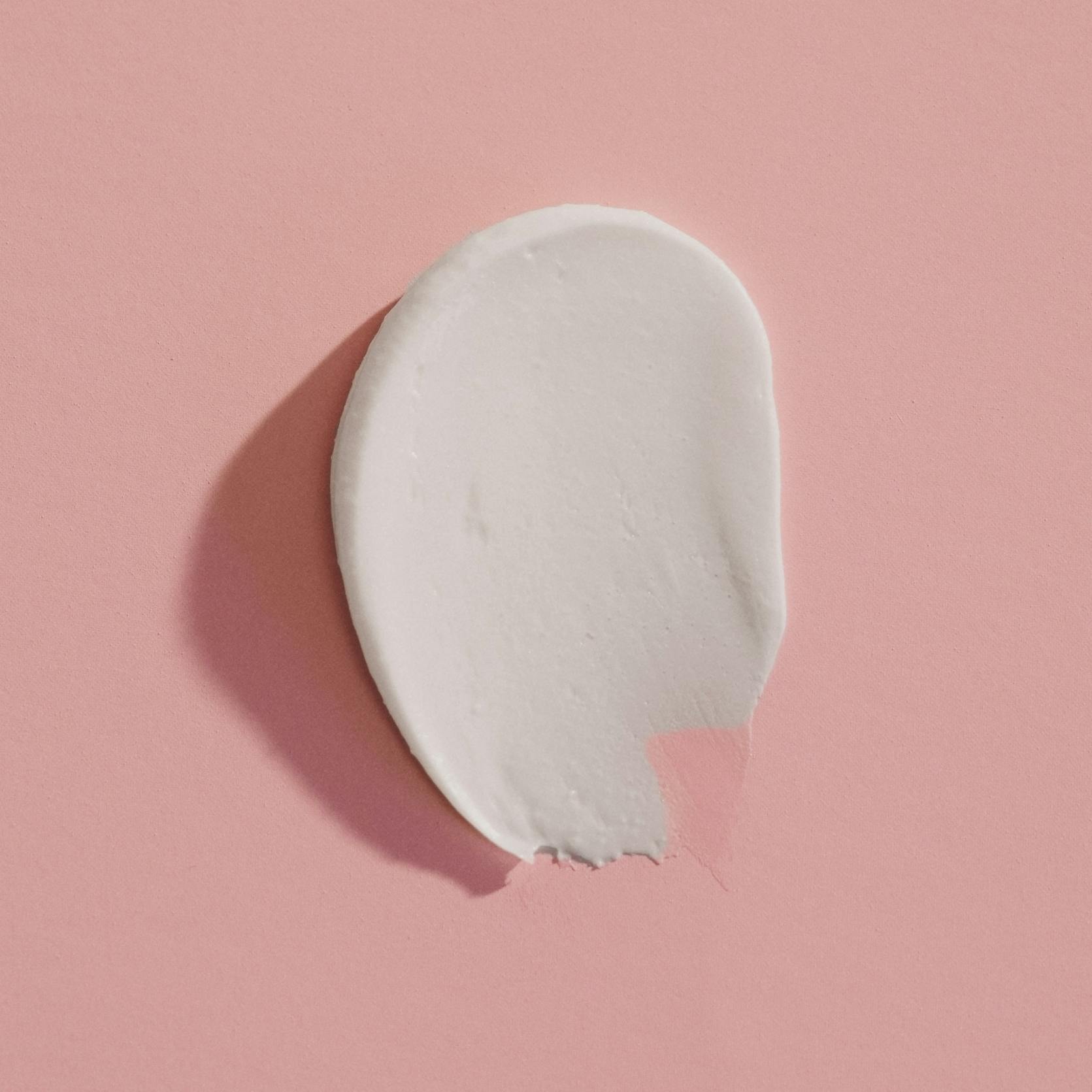Testosterone plays a key role in women's health, especially during perimenopause and menopause when levels naturally decline. This powerful hormone influences libido, energy, bone strength, muscle health, and mood. While declining testosterone can lead to low sex drive, fatigue, and other challenges, safe and tailored supplementation can help restore vitality and support overall well-being. With the guidance of a menopause specialist, you can discover whether testosterone therapy can help you in your midlife journey.
Note: Midi currently prescribes testosterone in the following states: AL, AZ, CA, DC, FL, IL, MA, MD, NY, OH, TX, UT, and VA. More states coming soon.
Because testosterone is a Schedule III controlled substance, it can only be prescribed in limited quantities, requiring new visits to re-up your prescription.
While hormone replacement therapy has become more widely used for relief of menopausal symptoms—with the words estrogen and progesterone woven into our everyday conversations —the discussions around using testosterone have not evolved as much. For the most part, testosterone is still thought of as something only men have to worry about.
But in fact “in our early 20s, testosterone is one of the most abundant hormones produced by the ovaries,” says menopause specialist Gisele Thissen, MSN, FNPC, NCMP, a clinician at Midi Health. Not only do we produce testosterone throughout our lives, we make three to four times as much testosterone as we do estrogen in our 20s and 30s. This powerful sex hormone has its hands in libido, musculoskeletal and pelvic floor health, energy, cognition, and much more.

Because testosterone receptors are dotted throughout the female body, from brain to bones to bladder, midlife fluctuations of this hormone have a range of trickle-down effects, leaving many women with low sex drive, muscle and bone weakness, fatigue, and moodiness or outright depression as they move through perimenopause and menopause.
Estrogen and progesterone in standard HRT is helping more and more women manage their hot flashes, emotional dysregulation (aka, moodiness, anxiety and depression), vaginal dryness, and other symptoms of dipping hormone levels. So, it makes sense that more women and clinicians are looking toward testosterone supplementation as another way to ease menopausal symptoms.
Will women benefit from testosterone as well? And what are the side effects of testosterone for menopause? Here, Midi clinicians lift the veil on an essential but still relatively unexplored and misunderstood topic.
The Role of Testosterone in Women’s Bodies Before and After Menopause
Testosterone belongs to a class of hormones called androgens. Androgen levels usually start to rise in girls between ages 6 and 8 as part of the very early rumblings of puberty. At this point, the body isn’t directly churning out testosterone. Instead, hormonal precursors called pre-androgens, including dehydroepiandrosterone (DHEA), run the show.
Several years later, the ovaries begin producing testosterone alongside the adrenal glands. In our 20s and 30s about half of our testosterone comes from the ovaries and pre-adrenal glands, the rest from the conversion of pre-androgens.
Like estrogen and progesterone, testosterone levels fluctuate during the monthly menstrual cycle, usually peaking around the time of ovulation. They fluctuate throughout the day, too, rising overnight.

Thissen calls testosterone “the hormone of desire” thanks to its starring role in sex drive, but testosterone is also involved in the following:
- Bone health
- Muscle mass
- Mood
- Energy
- Fertility
- Pelvic floor health
- Health of the vulva, bladder, and urethra
- Cognitive health
At around age 30, testosterone levels start gently declining at a rate of about 1% to 2% per year; by the time of menopause, levels are approximately half of what they were at their peak.
“Testosterone levels don’t show the same precipitous drop as estrogen and progesterone in menopause, but it does decline, overall,” explains Midi’s Chief Medical Officer Kathleen Jordan, MD. That’s because even after the ovaries have stopped producing estrogen, they continue making some testosterone. “It’s a slower, sloped decrease that picks up with the onset of perimenopause.”

Symptoms of Low Testosterone Levels in Women
Because it’s gradual, some women don’t notice the testosterone dip. Others may experience one or more of the following symptoms of low testosterone levels:
- Low sex drive and weaker orgasms
- Vaginal dryness
- Changes in energy level, especially fatigue
- Drops in strength and muscle tone
- Thinning hair
- Dry skin
- Depression
Thanks to a widespread lack of attention to the link between testosterone and women’s midlife wellness, it can be tricky to connect these symptoms with your testosterone levels. Far more often than not, “Women will come to me saying, ‘I just don’t feel like myself,’” Thissen says.
For women experiencing surgical menopause as the result of having both ovaries removed, the drop in testosterone is much sharper, and any related symptoms will likely hit much harder.
Common Misconceptions About Testosterone for Menopause
Patients often come to Midi with a lot of questions about testosterone use for their symptoms. Here, we’ll separate fact from fiction—and we’ll go into even more detail below.

Myth: Testosterone is a male hormone and only men should take it.
Truth: Not only do women produce testosterone throughout our lives, we make three to four times as much testosterone as we do estrogen in our 20s and 30s. This powerful sex hormone has its hands in libido, musculoskeletal and pelvic floor health, energy, cognition, and much more.
Myth: If women take testosterone, they’ll bulk up, grow beards, and develop a deeper voice.
Truth: These adverse effects are rare if levels are maintained within a "normal" physiological range, and are usually only associated with taking a too-high dose of testosterone.
Myth: Supplemental testosterone can only help boost sex drive.
Truth: The most proven benefit of testosterone in women is improvement in libido, but research suggests it may also help maintain muscle mass and bone density, improve cognitive abilities, and increase energy levels.
Myth: Testosterone isn’t safe for women—it needs to be studied more.
Truth: While it’s true that research into supplemental testosterone’s effects on women needs to catch up to the decades of research that have been done on men, there’s a growing body of evidence that shows testosterone is not only safe for women, but highly beneficial, helping to restore libido, boost energy, and possibly strengthen bones.
Myth: Testosterone causes hair loss
Truth: When taking the appropriate dosage, there is no evidence that testosterone or testosterone therapy is a cause of hair loss in either men or women.
Myth: Testosterone causes aggression
Truth: Although anabolic steroids can increase aggression and rage, this does not occur with testosterone therapy.
Using Testosterone Therapy to Revive Libido in Menopause
Thissen sees thousands of Midi patients a year, and says they usually mention low libido dead last when rattling off the long list of midlife symptoms they’re struggling with. But she encourages women to make it a higher priority. “Sex is important for so many reasons,” she says. “It can reduce stress, foster a sense of connection with your partner, raise confidence, and bring joy.” It also lowers blood pressure, revs the immune system, and helps you sleep more soundly at night—not always an easy feat when dealing with perimenopausal symptoms like night sweats and insomnia. While some women aren’t bothered by a missing libido, others may feel it as a huge blow—to their self image, their confidence, and their relationship(s).
In fact, Hypoactive Sexual Desire Disorder (HSDD) is the medical term for a libido so low that it causes you distress. It shows up as a lack or absence of sexual fantasies and zero desire for sexual activity. It affects about one in 10 women ages 45 to 64. (Low libido is even more common.) Research and anecdotal evidence alike shows that testosterone supplementation can help women with HSDD.
Note, too, that hormonal shifts during menopause can cause vaginal changes and genitourinary symptoms. “These symptoms include vaginal dryness, irritation, and pain with sex which can further contribute to HSDD,” says Dr. Jordan. It makes sense: If sex is painful, of course you’ll want a lot less of it. Dr. Jordan continues: “It’s important to make sure all of the factors that contribute to low libido are addressed—the physical changes, the emotional and relationship issues, as well as the desire component—because they’re all part of sexual health.
And for a huge number of women, they’re not adding up to a happy sex life. Between 68% and 87% of peri- and post-menopausal women report experiencing sexual concerns, according to research presented at the 2024 Annual Meeting of The Menopause Society.
It is taking time to get the scientific community to truly understand how much supplemental testosterone can help women, and to bring the emerging evidence into clinical practice. The benefits of supplementing testosterone for men, however, have been studied for over a century, dating back to 1889 when (steel yourself) a Mauritian physiologist and neurologist named Charles Brown-Séquard began injecting himself with a combination of semen, blood, and other fluids extracted from the testicles of dogs and guinea pigs. Then 72 years old, Brown-Séquard claimed the concoction boosted his energy, improved his sleep, strengthened his muscles, and even eased his constipation.
Today, testosterone replacement therapy is FDA-approved for men with documented low testosterone levels or symptoms of diminished levels, like erectile dysfunction, low libido, and patchy beard growth. But testosterone for women still needs more study, and women need more education to combat confusion, misinformation, and cliches. Even now, if you type “testosterone” into your browser, you may be greeted with memes of female pro-wrestlers or cartoons of women with steam shooting from their ears.
It’s time for that to change, because a range of respected medical organizations endorse the use of testosterone for HSDD, including The Menopause Society. Many cite a large study from 2019, involving nearly 8500 postmenopausal women, found that testosterone “significantly increased sexual function” —including sexual desire and pleasure, arousal, and orgasm. A Global Position Statement endorsed by multiple respected medical organizations—including the Menopause Society, the Endocrine Society, The International Society for Sexual Medicine, and The Royal College of Obstetricians and Gynaecologist—outlines the potential benefits for testosterone in postmenopausal women with HSDD.
As for women who haven’t yet hit menopause but are unhappy with the hormonal hits to their sex drive, the International Society for the Study of Women's Sexual Health says there is data supporting testosterone supplementation in late reproductive age premenopausal women with HSDD.
And it’s not all about sex drive, either. Scientists have linked low testosterone with weakened bones and diminished muscle mass in women and are studying its impact on brain function. Testosterone supplementation is not yet widely prescribed for these uses, but the evidence for using it for these indications is mounting,” says Dr. Jordan. Thissen adds that she’s also prescribed testosterone for women with low energy levels and premenstrual dysphoric disorder (PMDD), a severe form of premenstrual syndrome.
Despite all this support and the huge number of women dealing with low libido (HSDD is the most common form of female sexual dysfunction) there is no FDA-approved testosterone product for women in the U.S. (It is approved for use in Australia.) “American health insurance won’t cover testosterone replacement for women, either,” says Dr. Jordan, “so women’s health clinicians prescribe it off label, meaning they prescribe products not specifically approved for this use, and women then need to pay out of pocket to receive it.”
How Testosterone Treatment Works for Women
One thing to note is that the goal of testosterone replacement is to restore testosterone levels to close to what they were in your 20s and 30s, not to hop you up to levels over and above what they once were.
Notably, “we only give one-tenth of what men get,” Thissen emphasizes. In women, the most common method of testosterone supplementation involves daily application of a cream or gel, usually to the upper thigh, back of the calf, or buttocks. Placement is important to avoid it rubbing off on another person, or even a pet, while touching. (Always wash hands well with soap and water after applying.)
Testosterone cream or gel is absorbed systemically, entering the bloodstream and traveling throughout the body. Other testosterone formulations exist, including:
- Injections
- Pellets (tiny implants surgically inserted under the skin)
- Troches (oral doses that slowly dissolve in the mouth)
But note, these are not recommended by Midi, as they can easily raise testosterone levels to excess levels, which are then difficult to bring down.
Testosterone Supplementation in Menopausal Women: Are There Side Effects?
Most medicines can cause side effects, and this is true with testosterone as well. It’s important to work with a well-trained, responsible clinician when you’re considering using testosterone—someone who understands how to avoid side effects or help you detect them earlier and dial your dosing to ease them. The following side effects can occur, but can also be improved by changing dosage quickly:
- Hair growth in the area of application
- Facial hair growth
- Male pattern baldness
- Acne
Applying testosterone cream or gel in a discreet location, like the upper thighs or the back of the calves, alternating legs daily, can minimize hair growth and make this side effect more tolerable. (If you shave these areas anyway, Thissen notes, this may not feel like a big deal to you.)
As for acne, facial hair, or male pattern hair thinning, Thissen says these indicate a too-high dose that needs dialing back. Extremely rare side effects—also caused by improper dosing—are deepening of the voice and clitoral enlargement.
There are some conditions that may make testosterone replacement a no-go, so tell your doctor if you have any history, past or current, of the following conditions:
- Liver disease
- Heart disease
- Hyperlipidemia (high cholesterol levels being treated with medicine)
- History of hormone-sensitive breast cancer or uterine cancer
- Are pregnant or breastfeeding
A trained clinician can help you weigh the potential benefits and risks of testosterone replacement. For instance, some data suggests that short-term transdermal testosterone supplementation doesn’t impact breast cancer risk and that some women with a history of hormone-sensitive breast cancer may be testosterone replacement candidates, especially if their low libido is drastically diminishing their quality of life.
How Midi Prescribes Testosterone for Menopause Symptoms
Testosterone works centrally in the brain to affect sexual arousal, improve vaginal lubrication, and increase blood flow to the clitoris, vulva, labia, and vagina.
Midi prescribes testosterone cream to women in doses that are appropriate for them. If you’re curious about testosterone for low libido, your Midi clinician will ask you about any symptoms you’re experiencing and explore all the factors that contribute to desire, including your stress and energy levels, mood, relationship satisfaction, ability to orgasm, and any medications you may currently be taking that could lower libido.
“First, we need to find the root cause of what you’re experiencing,” Dr. Jordan says. “You may not have low libido–maybe you’re having painful sex, and you need vaginal estrogen and lubricant, not testosterone. Because if sex hurts, even if you have a higher libido, you’re not going to want it."
Your Midi clinician will order blood work, including a testosterone panel, which can be drawn at a clinic or lab of your choice. You’ll meet with your clinician again to discuss those results. If low testosterone levels are thought to be dragging down your libido or contributing to other bothersome symptoms, you’ll discuss options, which may include a testosterone cream or gel.
Patients going on testosterone should expect a series of check-ins to share any positive or negative changes you’ve noticed, to tweak your dosing if necessary, and to get a refill prescription. Most women notice a benefit in the first three to six months of testosterone treatment, Thissen says.
Note: Midi currently prescribes testosterone in the following states, with more coming soon: AL, AZ, CA, DC, FL, IL, MA, MD, NY, OH, TX, UT, and VA. Also, because testosterone is a Schedule III controlled substance, it can only be prescribed in limited quantities, requiring new visits to re-up your prescription.
Testosterone Testimonials: How Real Women Are Finding Symptom Relief
Thissen not only prescribes testosterone; she has her own prescription: “Before using testosterone,” she says, “my sex drive was okay while on vacation, away from the kids and work stress and sports practice, but once we got back to the daily grind, it wasn't there. My desire to be intimate with my husband has returned. We are enjoying the mid-day romps on the weekends again!” Libido aside, she adds, “it’s helped with my vitality, my energy, and my overall health.”
Other women echo the same benefits:
Alternatives to Testosterone Therapy for Menopause Symptoms
In addition to providing a thorough list of potential benefits and side effects of testosterone replacement, there are also alternatives you may want to consider, including:
Vaginal DHEA/Estradiol Cream
For many women, the gradual drop in estrogen that occurs during perimenopause and menopause can cause the vaginal walls to become dry, thin, and prone to irritation, contributing to painful sex and other problems. A vaginal DHEA/estradiol cream, when applied daily to the external vulva, has been shown to hydrate dry vaginal tissues and improve painful intercourse, which may, in turn, rev up interest in sex.
Cognitive Behavioral Therapy
Clinical trial results presented at the 2024 Annual Meeting of The Menopause Society showed that this type of therapy, which emphasizes reframing negative thinking patterns, led to significant improvement in multiple areas of sexual functioning, body image, and couple satisfaction in peri- and postmenopausal women.
Addyi (Flibanserin) or Vyleesi (bremelanotide)
These are two FDA-approved medications for HSDD (again, that’s low libido) in premenopausal women. Flibanserin is a daily oral medication that improves HSDD by targeting serotonin, a neurotransmitter heavily involved in mood and sexual desire. Vyleesi is an injection used on an as-needed basis to jumpstart desire.
The Takeaway
- Women naturally produce testosterone throughout their lives, making three to four times as much testosterone as we do estrogen in our 20s and 30s.
- Testosterone is a powerful sex hormone that has effects on libido, bone, muscle and pelvic floor health, energy, cognition, and much more.
- During midlife testosterone levels decline, though not as dramatically as plummeting estrogen levels do. This gradual decrease has trickle-down effects on numerous physiological and emotional processes, leaving many women with low sex drive, muscle and bone weakness, fatigue, and mood challenges as they move through perimenopause and menopause.
- The good news: Testosterone supplementation in women going through perimenopause and menopause can breathe new life into your sex drive, pump up overall energy levels, and possibly help strengthen bones and muscle. Keep in mind that supplementation needs to be done safely, and prescribed in appropriate doses to get the benefits without unwanted side effects.
Frequently Asked Questions About Testosterone for Menopause
What are the benefits of testosterone?
The most proven benefit of testosterone in women is improvement in libido. Additionally, it may help maintain muscle mass and bone density, improve cognitive abilities, and increase energy levels. Proper testosterone levels also help to regulate the menstrual cycle, ovulation, libido, and fertility.
Is testosterone right for me?
Possibly, yes. If low libido is a concern for you or interferes with your quality of life (and your healthcare provider has ruled out other root causes such as medication side effects or relationship troubles), then testosterone may be recommended.
Why do I need lab work while taking testosterone?
At Midi, we prescribe testosterone responsibly. That includes testing patients’ testosterone levels to ensure they’re not too elevated. Lab tests should be done when you start taking testosterone and usually again 4 to 6 weeks after starting. After that, you may recommend you get blood drawn every 6-12 months to ensure safety.
Is testosterone covered by insurance?
Most insurance plans don’t cover compounded medications, including testosterone, which is compounded for women. In addition, if you are prescribed testosterone, you’ll need regular lab work. You can check with your insurance plan’s member services to see if the cost of these labs will be covered.
Who shouldn’t take testosterone?
You shouldn’t take testosterone if you:
- Have a known allergy to the medication or its ingredients
- Have signs of androgen excess (hirsutism, concerns about hormonal acne, androgenic alopecia)
- Are taking anti-androgenic medications (e.g. finasteride, spironolactone)
- Have levels of testosterone greater than 100 ng/dL
- Are pregnant or breastfeeding
- Have hormone-sensitive breast cancers
How should I apply testosterone?
Midi’s testosterone is applied topically, or to the skin. Apply your prescribed dosage to the upper arms, shoulders, or abdomen. Allow the cream to dry before dressing or coming into contact with others, and be sure to wash your hands thoroughly with soap and water after applying.
Is testosterone safe to take?
Too much testosterone can have unwanted side effects, including permanent deepening of the voice, enlargement of the clitoris, acne, and hair loss. However, these adverse effects are vert rare if levels are maintained within a "normal" physiological range. If you’re prescribed testosterone, schedule follow-up visits and regular blood draws with your clinician that test testosterone levels to make sure they’re not too elevated.
Does Midi prescribe testosterone pellets?
No, Midi doesn’t prescribe pellets, which are implanted under the skin. Our compounded testosterone cream is applied topically, or to the skin. That’s because too much testosterone can have unwanted side effects, including permanent deepening of the voice, enlargement of the clitoris, acne, and hair loss. To avoid these side effects, Midi clinicians prescribe a very low dose of topical testosterone. This way, if a patient notices any side effects, they can stop applying the treatment for a few days. Pellets can release too much testosterone, and the treatment cannot be paused once they are implanted. Pellets cannot be removed or “dialed down” the way topical treatment can.
If you’re in perimenopause or menopause and want guidance from clinicians who specialize in women’s midlife health, book a virtual visit with Midi today.
Hormonal change is at the root of dozens of symptoms women experience in the years before and after their period stops.
Our trained menopause specialists can help you connect the dots to guide you towards safe, effective solutions.
Whether you need personalized guidance or a prescription routine to tackle symptoms—including brain fog, hot flashes, sleep trouble, mood swings, and weight gain—we’ve got you covered.
Midi’s mission is to revolutionize healthcare for women at midlife, wherever they live and whatever their health story. We believe that starts with education, to help all of us understand our always-changing bodies and health needs. Our core values guide everything we do, including standards that ensure the quality and trustworthiness of our content and editorial processes. We’re committed to providing information that is up-to-date, accurate, and relies on evidence-based research and peer-reviewed journals. For more details on our editorial process, see here.







